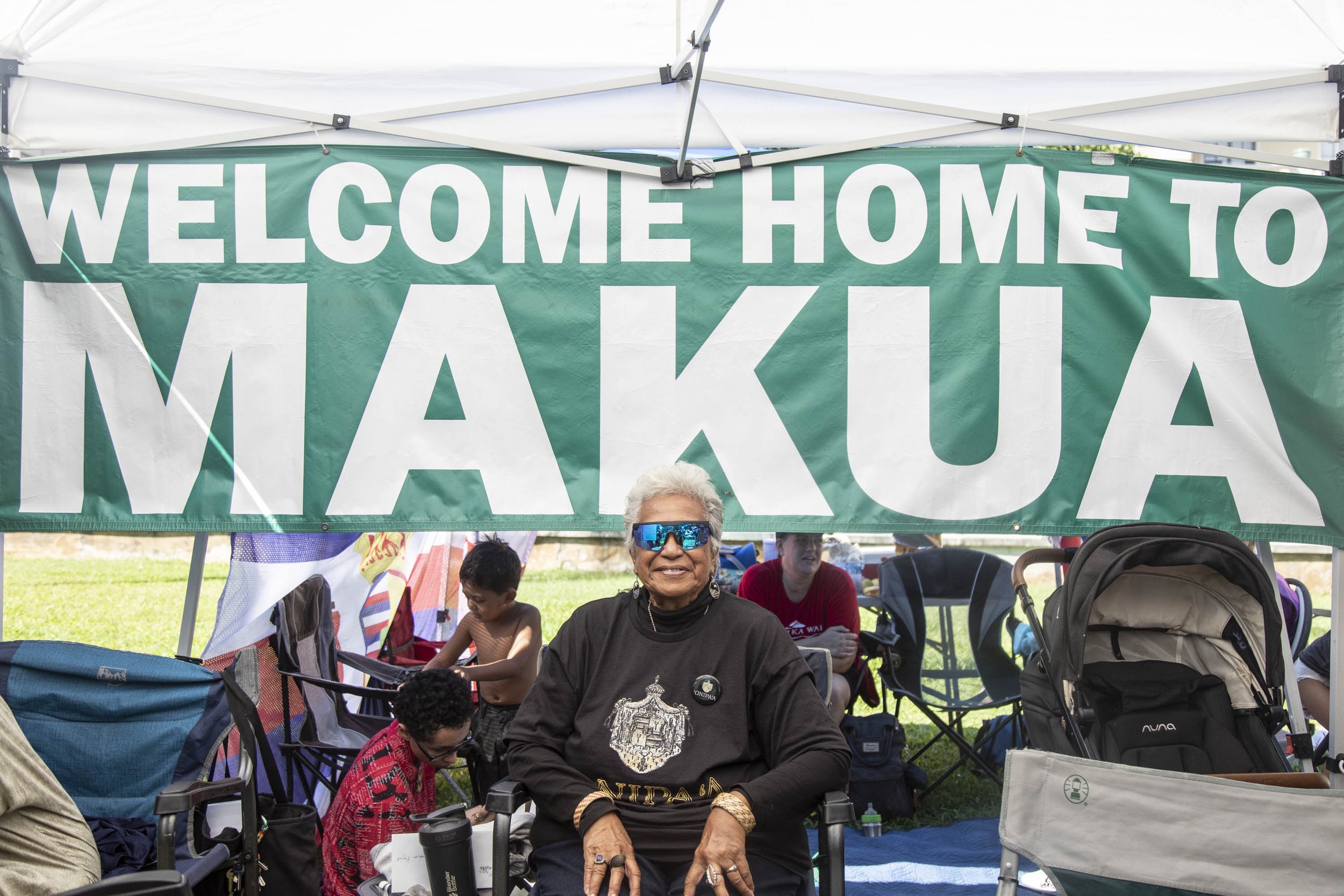Talk Story w/ HAPA at the 2023 ʻOnipaʻa Peace March
By Nanea Lo
On January 17th, 1893, a group of Western businessmen backed by the U.S. military forced the Hawaiian monarchy from power. A chain of events happened thereafter that would lead to the loss of culture, land, and identity for Kānaka Maoli (Native Hawaiians).
2023 marked 130 years since the illegal overthrow of the Hawaiian Kingdom. The HAPA team was honored to walk alongside the lāhui o Hawaiʻi to show solidarity and be ʻOnipaʻa (steadfast).
The day started at Maunaʻala in Nuʻuanu with a plethora of ceremonies to the aliʻinui of Hawaiʻi (Hawaiian Monarchy). A sea of Kamehameha Schools haumāna (students) came by busload along with Hawaiian charter schools, Hawaiʻi public schools, groups from all over Oʻahu, and sister island groups who flew in for the day. It was a sight to see. Thousands united and marched in peace to ʻIolani Palace where we were able to meet community members, learn from powerful speakers about the moʻoleo of this day, and witness countless other acts of ʻea, poetry, music, and ʻoli.
Hawaiʻi is the only “state” to have once been an independent monarchy, and January 17th will always remind us of this historical injustice. We will keep fighting until the Hawaiian Kingdomʻs sovereignty is rightly returned back to its people.
The sacrifice that Queen Liliʻuokalani and Hawaiʻi’s people continue to endure will never be forgotten. Ea forever!
ʻAlihilani Katoa
“I’m here on this significant date of 1/17 to spark interest in our youth (high schoolers) to organize. We’re here at ʻIolani Palace in commemoration of the overthrow of the Hawaiian Kingdom. What can kānaka ʻōiwi do today to resist illegal occupation, militarism, and transition towards an Independent Hawaiʻi? Let’s talk about it.”
Keawe Parker
“I'm here at ʻOnipaʻa really to come home. For a number of reasons, I honestly didn't know that ʻOnipaʻa existed. I myself am a Black-Kanaka Maoli-Chinese-English mix, but I didn't grow up in a household that fostered any sort of connection to ʻāina, fostered any sort of connection to culture, but I'm here today to continue the healing as an individual, as a part of this community, and for future generations.”
ʻIhilani Lasconia
“There's a couple things that bring me here today. The first reason being, of course, is January 17th, and it marks the 130 years since our illegal overthrow and our illegal occupation. For us as Kānaka Maoli, it's important for us to gather on times like this to remember, not just our history, but the fact that we're still standing.
And so, although today is a day of mourning, it's also a day of celebration because we were once only 40,000 people. But to know that we've grown so much since then, not just in numbers, but in our awareness of our history. I think that's something incredible and deserves to be celebrated. So I'm here today with a couple other haumāna, or students, at the university in the Indigenous Politics Department. And really, my purpose here is, one, to remember, two, to celebrate and, three, to envision ways where we can see a deoccupied Hawaii unencumbered by Americanization.”
Georgiana Navarro
“This experience with Onipa'a is the first time for me seeing it from the whole procession: the entry, the Oli chant, the welcoming in. I was just taken away by the whole experience and actually being in the place of my people.”
Daniel Kauwila Mahi
“What brings me here today is standing with my people and standing with the land on this day of infamy, January 17th, the 130th anniversary of the overthrow of the Hawaiian Kingdom.. Aside from that, I want to be here with other like-minded people so we can grow together and establish more relationships so we can make change within our community. So we can shift away from boring ideologies of being pro-capitalism, pro-American, and really dive deeper into theories of aloha ʻāina where we can have really deep, established relationships with land and with each other.”
T.J. Cuaresma
“How did Liliʻuokalani feel as she sat in her house and became a prisoner in her own hale? We should not be celebrating this day. We should be sharing information about this egregiousness. That is why I am here today.”
Kepa Barrett
“I am here to give honor to Queen Lydia Lili'u Loloku Walania Wewehi Kamaka'eha Lil'uokalani in honor of her and the strength that she showed for all future generations of Hawaiians and people of Hawaii who love this land, who love this place. I'm here to represent those generations who came before me and those generations who will come after me. I am merely a river of Kānaka who love Hawaiʻi, and no one here I believe is a reservoir. We are all a part of the great moʻolelo of our history, and we are surely just here to pay tribute to our queen.”
Photos by Marie Eriel Hobro
Interviews Conducted by Marie Eriel Hobro and Nanea Lo







